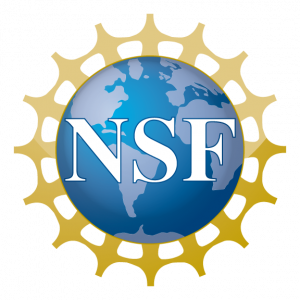Blum Center for Developing Economies
The University of California, Berkeley
Blum Hall, #5570
Berkeley, CA 94720-5570
(510) 643-5316 •
blumcenter@berkeley.edu
Subscribe to our newsletter
© 2024 Blum Center for Developing Economies
It is essential that presentations, journal articles, and any other products that emerge from the student’s work, acknowledge NSF support and include an NSF disclaimer (see below). NSF requires this acknowledgement and disclaimer whether the research or publication was supported fully or partially, directly or indirectly. Please send any InFEWS-related publications and presentations, produced during the funding period and beyond, to infews@berkeley.edu, and your publication will be included in the NSF Public Access Repository (NSF-PAR) as well as the Blum Center InFEWS website.
Acknowledgement: “This material is based upon work supported by the National Science Foundation under Grant DGE-1633740”
Disclaimer: “Any opinions, findings, and conclusions or recommendations expressed in this material are those of the author(s) and do not necessarily reflect the views of the National Science Foundation.”
It may not always be clear whether you should acknowledge the NRT that supports INFEWS. When in doubt, consult the guidelines below. If these do not provide a clear answer for a specific case, reach out to InFEWS@berkeley.edu.
Support can be relatively direct or indirect. Either way, you should acknowledge the InFEWS NRT.
Posters, acknowledgement slides for talks, and most importantly, acknowledgement sections in papers should contain the (A) NSF acknowledgement and (B) NSF disclaimer below. Here are versions you could use. The minimalist should almost always suffice. Note that the disclaimer never needs to be modified; you should include it verbatim.
Minimalist version
Acknowledgement: “This material is based upon work supported by the National Science Foundation under Grant DGE-1747486.”
Disclaimer: “Any opinions, findings, and conclusions or recommendations expressed in this material are those of the author(s) and do not necessarily reflect the views of the National Science Foundation.”
Elaborated acknowledgement that promotes SLAC
Acknowledgement: “This material is based upon work supported by the program in Science of Learning & Art of Communication at the University of Connecticut, which is supported by the National Science Foundation under Grant DGE-1747486.”
Partial support acknowledgement
The minimalist acknowledgment is appropriate for any degree of support. If you wish to be more precise, go ahead, e.g.: “This material is based upon work supported in part by the National Science Foundation under Grant DGE-1747486.”
Does a conference or publication require the PI to be specified?
Occasionally, guidelines for a conference or publication may specify that you list the PI. If so, just add “(J. Magnuson, PI)”.
If you are interviewed about work that relates to SLAC, NSF requires that you mention that the program is supported by the NSF.
 This material is based upon work supported by the National Science Foundation under Grant No. DGE-1633740. Any opinions, findings, and conclusions or recommendations expressed in this material are those of the author(s) and do not necessarily reflect the views of the National Science Foundation.
This material is based upon work supported by the National Science Foundation under Grant No. DGE-1633740. Any opinions, findings, and conclusions or recommendations expressed in this material are those of the author(s) and do not necessarily reflect the views of the National Science Foundation. © 2024 Blum Center for Developing Economies